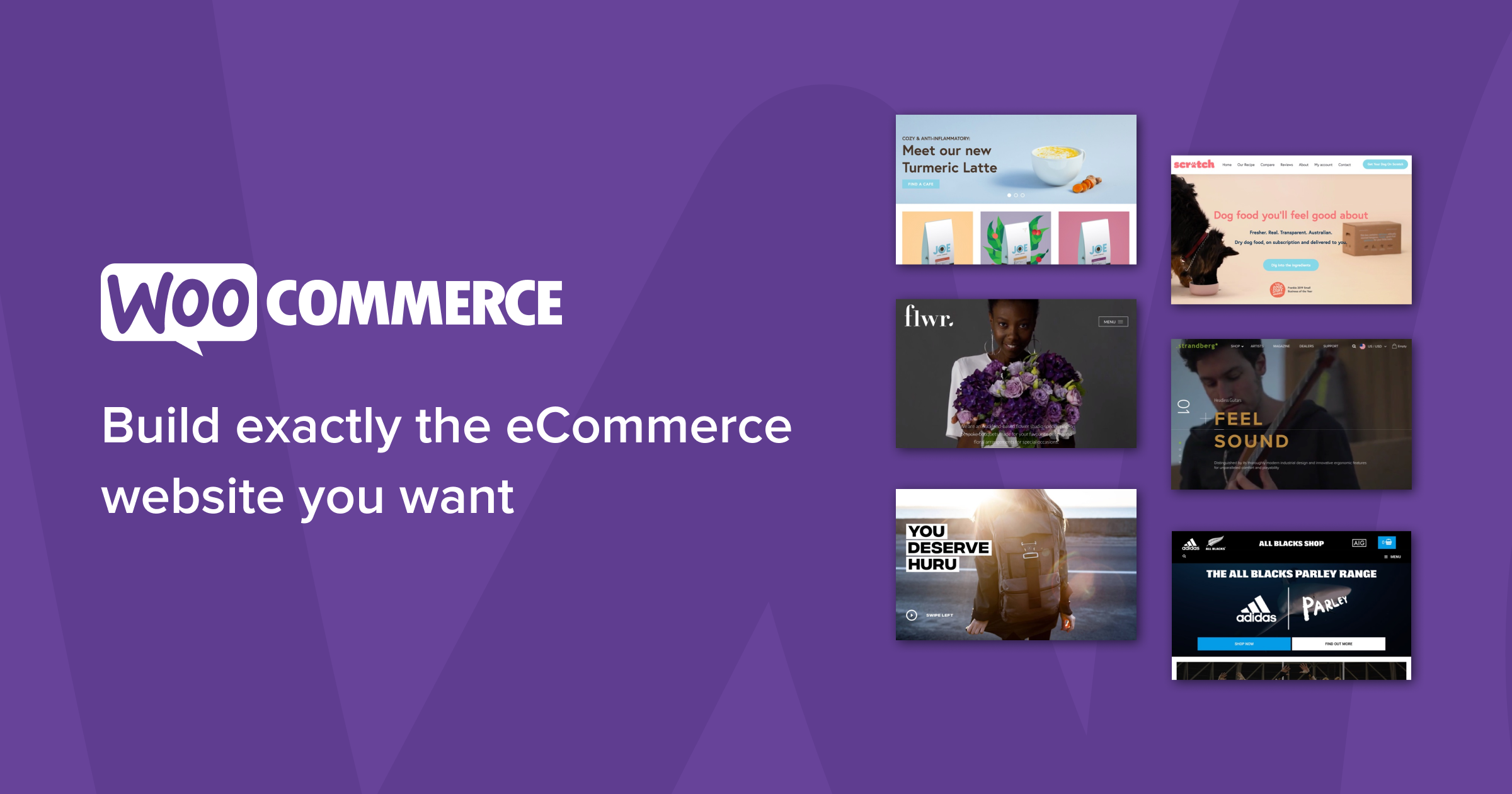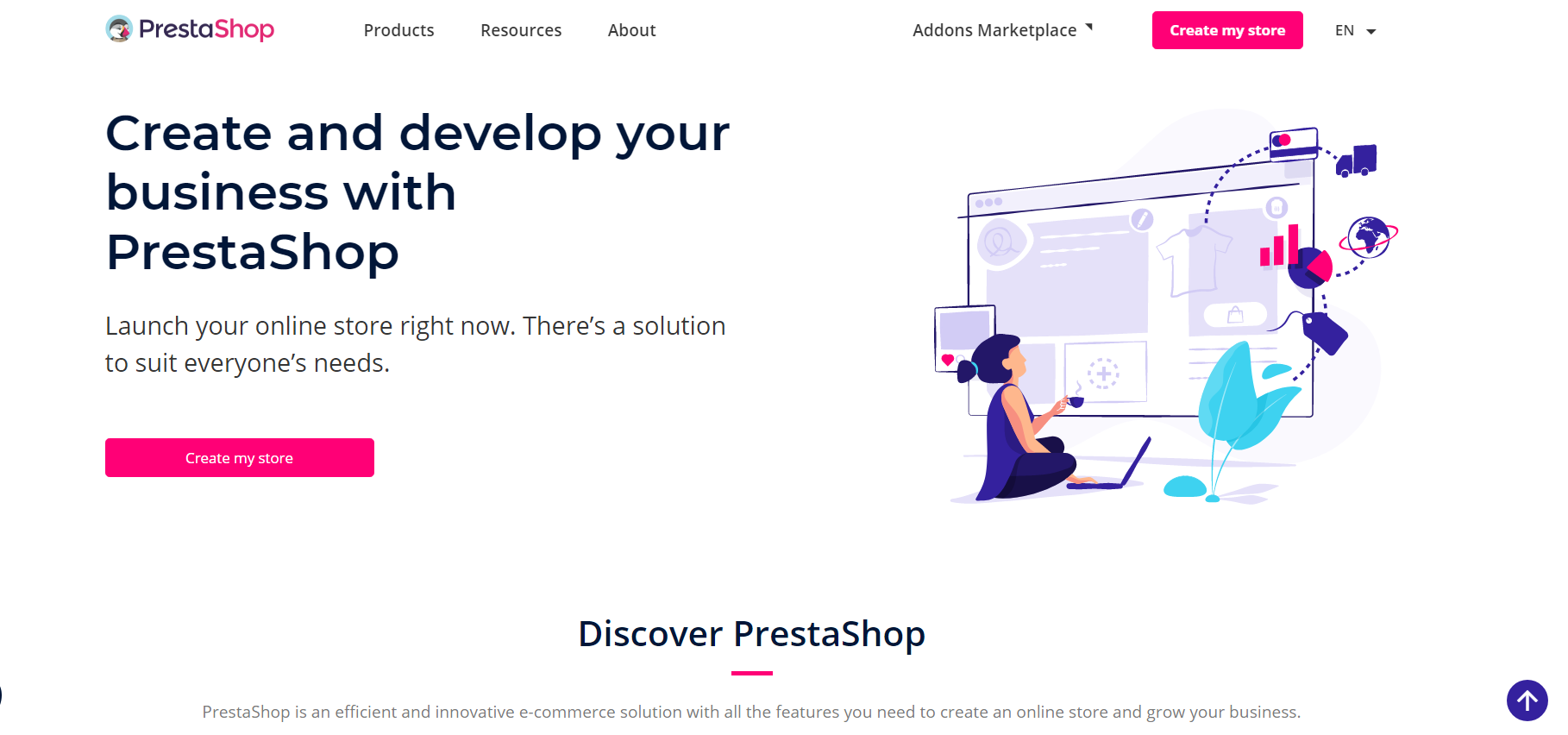6 Shopify Alternatives in 2021: Which Is Your Perfect Match?

If you’ve been searching for “best eCommerce platforms” on Google, you surely would have seen Shopify topping a few of those lists. Shopify is a lot of things – fully hosted, easy to use, numerous plugins and themes, and 24/7 customer support.
As wonderful as Shopify can be, of course, it’s not going to be the right solution for every merchant out there. That might also be the reason why you’re here – looking for Shopify alternatives.
To help you determine your go-for eCommerce solution, we’ve collected the best six Shopify alternatives in this write-up. For each alternative, we’ll be looking at its ins and outs as well as compare what it does better than Shopify.
In case you’re selling on Shopify and find out your current business and Shopify are no longer the perfect two, you can always migrate to a brand-new platform with the help of LitExtension, a shopping cart migration expert service provider that can help you swap carts in a jiffy.
Read to learn more about the best alternative you have to Shopify in 2021.
What are Shopify’s drawbacks?
1. It Can be expensive
Shopify pricing is clear and straightforward. It has different pricing plans, so you can choose one that best suits your needs and budget.

Being a hosted solution, Shopify price already includes domain name, SSL certificate and web hosting. Nevertheless, you may need to install third-party apps to boost the functionality of your store since Shopify has few built-in features. And most of the time, these Shopify apps come with a price tag.
Besides, you’ve also got to be aware that you’ll get charged transaction fees if you choose other payment processors over Shopify Payment. Depending on your Shopify plan, the additional fee is around 0.5% – 2% per transaction.
Shopify can be more expensive than it appears at first. The combination of transaction fees and the need for third-party apps can hike up the monthly cost of running an online store.
2. SEO features limitation
When it comes to SEO, Shopify offers a basic set of SEO features at your disposal. For instance, Shopify allows its users to edit meta tags, add alt text to images, and create 301 redirects.
The main thing missing from Shopify’s SEO set is that it has a rigid URL structure, which means some sections of Shopify URLs cannot be adjusted. Furthermore, it’s quite difficult to create sub-categories on this platform.
With that being said, the high price and SEO features limitation are the two main drawbacks of Shopify. Fortunately, there are plenty of great Shopify alternatives that can fill the gaps which Shopify has left unattended.
If you take your time and try out these Shopify alternatives, you may also find an eCommerce solution that is more in line with your specific blend of requirements and resources.
What are the top 5 Shopify alternatives?
We’ve compiled a helpful list of the leading alternatives to Shopify that you can consider using right now. We’ll provide some in-depth details and information for you to help you make the best choice for your business.

WooCommerce
Our first recommendation is WooCommerce, the most highly-rated WordPress plugin for eCommerce.
Thanks to the open-source nature, WooCommerce offers a greater degree of flexibility and customizability compared to its competitor Shopify. Therefore, WooCommerce is a better bet if you’re confident with your coding skills.
Also, SEO features are where WooCommerce surpasses Shopify. As a WooCommerce user, you can make adjustments to content, alt texts, meta descriptions, slugs and much more. Besides, WooCommerce provides a decent range of SEO apps that support you to optimize your product pages for search engines. Yoast SEO and All in One SEO Pack are two of the most well-known names in the SEO-specific apps market.
Other WooCommerce pros:
- No additional transaction fees
- A huge library of themes and plugins
- Innovative blogging functions
WooCommerce cons:
- Technical skills required
- Lack of customer support
- Slow page speed

Magento
Before getting down to the nitty-gritty, Magento is of great importance to note that there are philosophical differences between Shopify vs Magento.
Shopify is an all-in-one hosted solution, which comes packed with almost all the tools you need to launch a site. Hence, Shopify is a perfect match for amateur users who prefer the idea that everything is already made out of the box.
Whereas, Magento is an open-source solution that is free to download and install but you’ll have to pay for some extras such as hosting, domain and security. By the same token, Magento gives you more granular control over your site, from themes & plugins to security & support.
In addition, Magento edges over Shopify in the SEO department. Magento has a wider range of built-in SEO features, such as SEO prompts and the ability to customize URLs. Meanwhile, with Shopify, you’ll need the help of third-party apps for many of your SEO wants and needs.
Plus, Magento has more payment gateway options than Shopify. Not to mention, Shopify imposes its own transaction fees unless you use Shopify Payment.
Other Magento pros:
- Fast page loading time
- Impressive security capabilities
- Super scalability and large capacity
Magento cons:
- Steep learning curve
- Limited support

Prestashop
Though lesser-known than WooCommerce and Magento, Prestashop is a brilliant solution to scale your business into the eCommerce world. Just like the two aforementioned Shopify alternatives, Prestashop is a freemium open-source eCommerce solution.
But what makes PrestaShop one of the best Shopify alternatives, and what makes it stand out from WooCommerce and Magento?
First off, Prestashop is way simpler to install and operate than WooCommerce and Magento. The platform offers an user-friendly back-office and an intuitive interface. Thus, even non-techies can figure out how things work in a couple of minutes. Also, you are capable of modifying the underlying code to tweak your Prestashop store at your will.
Moreover, despite being an open-source solution, Prestashop customer support is considered more dedicated and helpful than that of Shopify. You can schedule a 15-minute meeting with PrestaShop experts or ask for help from the support team via phone call. Prestashop also comes with four technical assistance plans, so that you can choose your suitable service.
Prestashop Technical Assistance service
So, these are wonderful things about this platform – easy to use, highly customizable and round-the-clock support. It seems to perfectly combine characteristics from both open-source solutions and hosted ones, doesn’t it?
Other Prestashop pros:
- No extra transaction fees
- Multilingual, supports international sales
Prestashop cons:
- Few free templates
- Not as feature rich as Shopify

Wix
As lots of people come up with the question, “Wix vs. Shopify, which one is better?” Wix deserves to be one of the most prominent Shopify alternatives.
Despite a wide selection of features, Wix is surprisingly affordable, with a range of packages to choose from. Currently, Wix provides three pricing plans that range between $17 and $35. Compared to Shopify, Wix offers more reasonable plans. Besides, Wix gets a thumbs up for not charging any transaction fees at all if you use a third-party payment gateway.
If you’re looking for an all-in-one website building tool that can enhance your online brand, then Wix has everything you need. If you wish to add some bells and whistles to your online store, you can visit the Wix app market. There, you can choose from around 200 apps in total, with around 50 included in the category for online store selling.
Other Wix pros:
- Ease of use
- Design flexibility
Wix cons:
- Limited loading speed

BigCartel
An eCommerce platform for artists? Sounds strange? Yes, it does. But that’s what BigCartel is about!
BigCartel sets itself apart from hundreds of eCommerce solutions in the market by specifically targeting artists who are looking for a simple platform to sell their creative works. It’s true that BigCartel doesn’t offer all the advanced features of Shopify.
However, this platform is not gearing towards medium to large-scale businesses, but rather has set up its own niche in the arts and crafts community.
When considering Big Cartel vs. Shopify, it’s import to understand that both are hosted solutions but BigCartel switches its focus on ease of use while still providing all the basic, necessary features to kickstart an online store. Therefore, if you are looking to sell some items and don’t need extravagant features, BigCartel is undoubtedly worth your consideration.
Other BigCartel pros:
- Affordable price
- Free themes
BigCartel cons:
- Limited selling channels
- No live chat and phone support

OpenCart
OpenCart is another popular open-source online store management program that should be put on your Shopify alternatives list. As an open-source platform, OpenCart comes with all the benefits of administering your site on your own server.
Nonetheless, it’s still quite user-friendly and easy to use. This platform has a clear-cut administrator dashboard to let you manage products, promotions, orders, and reporting without any technical expertise required.
Both OpenCart vs Shopify have a plethora of apps and extensions. Some are free and some are fee attached. However, Opencart’s extensions are generally cheaper than those of Shopify. OpenCart also grants you the opportunity to use custom code to expand your site capability.
Other OpenCart pros:
- Cheaper than Shopify
- More payment options & charge-free payment
OpenCart cons:
- Limited built-in marketing features
- No 24/7 live chat and phone support
Final verdict
We have come a long way to review the best six Shopify alternatives, Now, it’s time for the final verdict.
If you are tech-savvy and prefer the idea of more control over your site, you can consider one of these solutions: WooCommerce, Magento, Prestashop or OpenCart. Or else, if you’re looking for something that’s much like Shopify but way cheaper, then Wix is our recommendation. Lastly, if you’re just dipping your toes into the eCommerce world, starting out with a basic and simple platform like BigCartel is a safe yet smart choice.
Of course, none of these Shopify alternatives is better in every single area. It’s about trade-offs and finding the right balance for your individual needs. Hence, don’t rush, take your time to figure out your perfect platform.
Hopefully, this write-up has helped you decide which platform you should opt for. Next time you come back to our site, we hope you’re looking for some tips and tricks to boost your sales!
All the best on your journey with eCommerce business!
Email & SMS Marketing For Your Online Store
Use Action Alerts ecommerce email and SMS marketing to keep your customers updated about their order, a delivery, a return label acceptance scan and more. Remarket with Action Alerts to cross-promote and upsell new products and to keep your brand in sight. Each ReadyCloud CRM user license comes with 100 FREE Action Alerts you can use to grow your business each month. Start for free today, no credit card is needed.
Share On:








